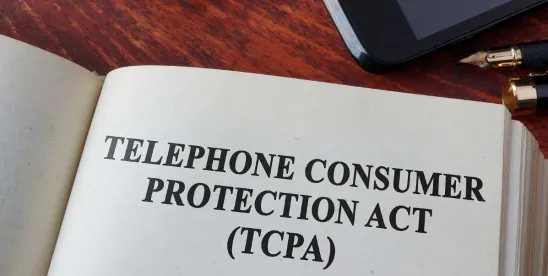I’m back with another blog and ready to dig into the post-Chevron world in the Eleventh Circuit.
First, a little background.
On June 28, 2024, the Supreme Court decided to close the book on Chevron deference in its landmark case Loper Bright Enterprises v. Raimondo, 144 S. Ct. 2244 (2024). Chevron generally required courts to defer to agency interpretations of the statutes they administered. See generally Chevron U.S.A. Inc. v. Nat. Res. Defense Council, Inc., 467 U.S. 837 (1984). Chevron deference governed the way that courts handled issues of administrative law for forty years. In the TCPA world, it meant that courts yielded to the FCC’s interpretations of the statute.
Despite the fall of Chevron, the Hobbs Act (enacted in 2006) remains, placing district courts in a tenuous position. The Hobbs Act, 28 U.S.C. § 2342(1), provides that the courts of appeals have “exclusive jurisdiction to enjoin, set aside, suspend (in whole or in part), or to determine the validity of all final orders of the Federal Communications Commission[.]” This grant of exclusive jurisdiction appears to strip district courts of jurisdiction to rule on orders of the FCC.
The Act is arguably softened by the Supreme Court’s words hinting that if an FCC order were an interpretive rule, it may not be binding on a district court. PDR Network, LLC v. Carlton & Harris Chiropractic, Inc., 588 U.S. 1, 7 (2019). However, the Court expressly noted, “we say ‘may’ because we do not definitively resolve these issues here.” Id. Accordingly, the circuit courts of appeal have differed interpretations of the Hobbs Act and its impact on district court power.
The Eleventh Circuit staunchly holds that the Hobbs Act prohibits district courts from considering any argument that an agency misinterpreted the law, “no matter how wrong the agency’s interpretation might be.” Gross Motels, Inc. v. Safemark Sys., LP, 931 F.3d 1094, 1106 (11th Cir. 2019) (quoting PDR Network, LLC v. Carlton & Harris Chiropractic, Inc., 588 U.S. 1, 11 (2019)). With that, the proverbial hands of its district courts are tied.
This brings us to the case at bar.
In Radvansky v. Kendo Holdings, Inc., No. 23-cv-214, 2024 WL 3811996 (N.D. Ga. Aug. 13, 2024), the Chief Judge of the Northern District of Georgia denied the Defendant’s motion to dismiss because it challenged the validity of an FCC order ruling that wireless cellphone subscribers are to be considered “residential subscribers” under the TCPA. This challenge asked the District Court to review a matter of agency interpretation—the act forbidden by the Eleventh Circuit’s precedent on the Hobbs Act. The District Court’s refusal to do so is therefore unremarkable.
However, the Chief Judge notably weighed in on the challenged order and implored the Eleventh Circuit to revisit the Hobbs Act issue in favor of district court review. Regarding the FCC order, he expressed concerns that it may exceed the FCC’s congressional authority by expanding the TCPA’s private right of action to include wireless cellphone subscribers without a congressional grant.
The Chief Judge then called upon the Eleventh Circuit to “let the district courts do their job” and reconsider the Hobbs issue. Id. at *6 n.2. In alignment with Judge Pryor’s concurrence of the Eleventh Circuit decision, he argued that the Hobbs Act does not require district courts to treat these agency orders as binding precedent—a view shared by Supreme Court justices. Indeed, he posited that the Eleventh Circuit’s ruling is likely unconstitutional because it requires district courts to completely forfeit their judicial power to congressionally authorized agencies, thereby violating the Due Process Clause and the separation of powers.
For now, district courts of the Eleventh Circuit are bound by FCC orders when reviewing TCPA actions. In the coming months, it will be exciting to see if other district courts come out of the woodwork to challenge this Eleventh Circuit precedent.
This article was authored by Kayla Kershen.



 />i
/>i

